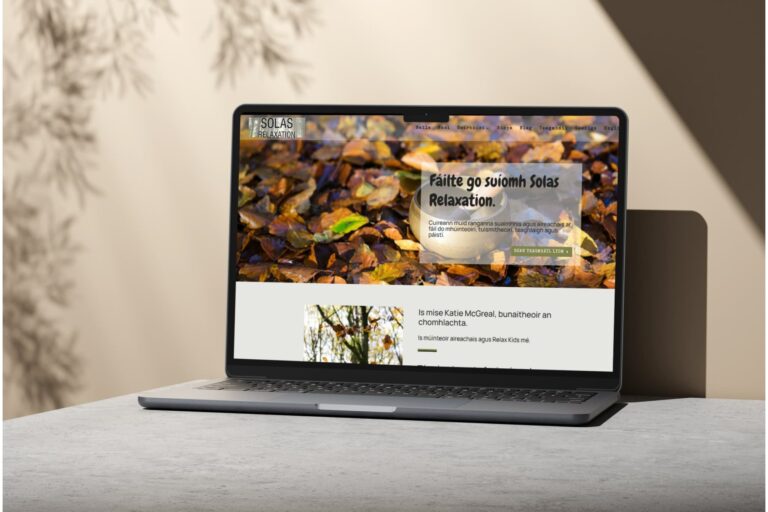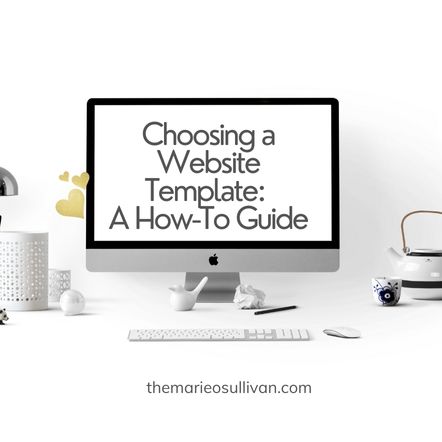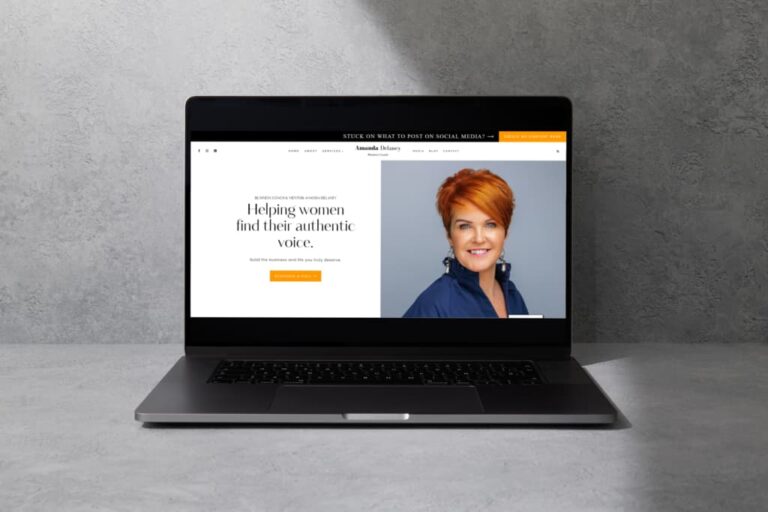
Debating if it’s worth having a coaching website in 2025. Or if it’s an optional extra these days, like windscreen insurance?
Unsurprisingly, as a web designer, I have a pretty biased opinion here, let me explain why:
Having a website is an incredible opportunity to grow your reach, build your email list, and get your offers in front of the right eyes. But at the same time, I don’t think a fancy schmancy website is essential if you’re out the door with word-of-mouth referrals, have a waitlist, and have no capacity for any more clients.
I do think it can be a good idea to have a simple website regardless because it helps potential clients to get a sense of you before getting in touch. That’s particularly important if you’re working in a sensitive field.
Let me be very clear though – a website alone cannot save a business that is not making money. It wouldn’t be ethical of me to pretend otherwise.

Imagine yourself at a networking event, feeling proud to share the link to your website with a room full of your ideal clients.
Or being interviewed on a major podcast and having the perfect freebie ready to go.
Or speaking at an event and having a blog post that can really help your people.
We are living in an amazing age of opportunity, you can work with clients from all around the world, thanks to the magic of technology.
Who knew twenty years ago that you would be able to hop on a Zoom call and connect with people you’d never met? When I was at school I didn’t even have a mobile phone!
Having a website is an incredible opportunity because people are searching for exactly what you do.
What I'll cover
What I’ll cover:
Can I get by with social media instead of a website?
Many coaches start out by growing their businesses on social media. It’s not hard to guess why – it’s free and it’s a way to quickly start outreach and get in front of potential clients.
But social media is getting more competitive and noisier. The benefit of having a website is that there’s less risk of potential clients getting distracted and forgetting all about you. Let’s face it, everyone is giving out that Instagram reach is a mess, Facebook posts seem to be on the decline … and as for Twitter, I won’t even go there!
It can be frustrating when you’re wholly dependent on social media algorithms. And a recipe for burnout if you feel like you’ve to show up every day.
But relying solely on social media for your entire marketing strategy isn’t a great idea. Why?
Because your account could get blocked overnight and you’d have no way to connect with the audience you’ve been nurturing. That’s a sobering thought.
Unlike with social media, if you have a website you’re in control of your digital home.
Why invest in a website?
If you’re asking yourself “Do I need a website?”, here is a checklist that will help you decide if it’s worth the investment for your business.
1. Grow your audience (SEO)
SEO (Search Engine Optimisation) can help you to get found online by perfect-fit clients. If you’re a sole trader feeling daunted at the thought of trying to compete with massive outlets in your niche, don’t be.
Remember that Local SEO can help you to rank your website in your local area and engage with potential clients nearby who are searching for exactly what it is that you do.
To tap into the benefits of SEO you’ll need to research keywords, write content people are searching for online and do outreach to build links to your site.
2. Bring clients on a journey
A website is like your online shop window. If well-designed it can help bring prospective clients on a journey and complement your marketing efforts.
Tools like Google Analytics and Google Search Console can help you to identify what brings people to your website, what stage of the customer journey they’re in and which marketing efforts are paying off for you.
Getting feedback on the search terms that bring people to your site, how they found you and what they’re looking for can give you invaluable insight into your audience. It can also help you to create offers that align with what they want and need.
The benefit of having a website is that, unlike social media, you own your real estate (once you keep up with your website hosting and domain name payments).
3. Grow your email list
When set up correctly, your website can help you grow your email list and stay connected with potential clients who might not be ready to buy yet or those who might turn into repeat business.
By setting up a valuable freebie on your website you can bring your people on a journey where they get to know, like, and trust you.
4. A website can boost credibility
Why is a website more credible than social media?
The answer to this question is simple: a website has credibility because it features honest testimonials, places you’ve been featured, and your qualifications and expertise.
There’s a higher barrier to entry when it comes to having a website than just setting up a social media profile so that lends credibility too.
But all this assumes that there are trust signals on your website, like an SSL padlock, secure payment methods, and an about page that communicates why clients should trust you.
If you’re a coach or therapist make sure to mention if you are attending supervision if you have insurance and any recent CPD you’ve undertaken.
If you feel like you don’t know where to start when it comes to what you need to get a coaching website, you might enjoy my post “The Complete Beginner’s Guide to Starting a Successful Coaching Website.”
Key takeaway
The truth is, depending on your stage of business, you may not need a website yet. However, having a website can increase your reach and get you found online. The key to creating a successful website is knowing your target audience and niche. If you don’t have clarity on that, more than likely a website won’t be worth it for you because the foundations aren’t right.
The thing is, a website can help to create a favourable impression, but only if it’s professionally designed and has been built with a strategy in mind.
If you’re thinking about getting a new coaching website, or looking for design tips for an engaging coaching website check out this post to find out why web design is important when it comes to promoting your coaching business. And when you’re ready to find out more about how I can help, get in touch to book a complimentary call.





